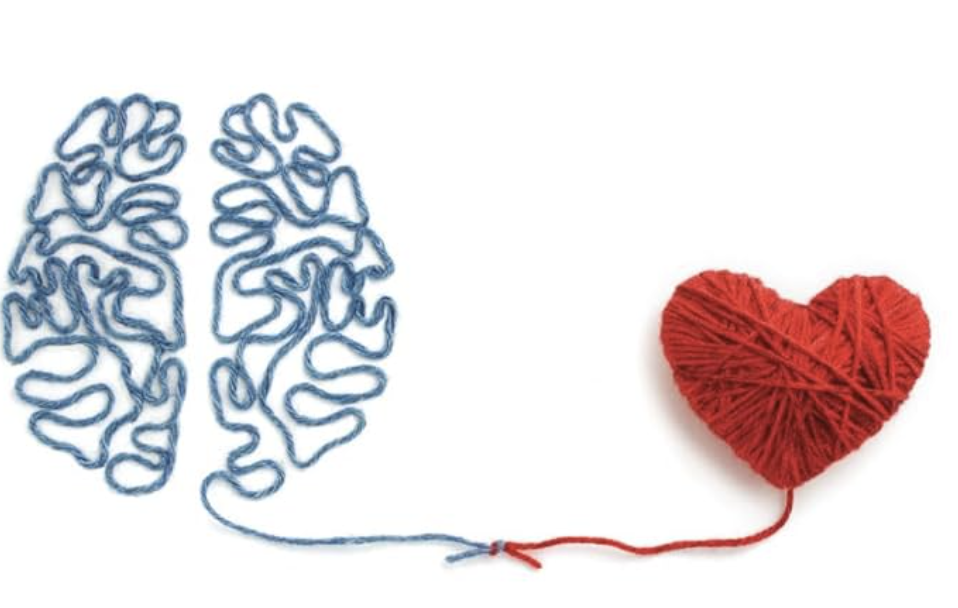How Virtual EMDR Therapy Can Address Trauma Attachments
How Virtual EMDR Therapy Can Address Trauma Attachments
We are all social creatures by nature, but sometimes our relationships with others can cause significant pain and trauma. Experiences of abuse, neglect, and loss can profoundly affect our ability to lead happy and healthy lives. When these painful events occur, especially during our developmental years, they can lead to mental health challenges. This includes anxiety, depression, unhealthy relationships, and the development of unhealthy coping mechanisms.
For those who struggle to move beyond these past traumas, negative relationships from the past can continue to cast a shadow over their present lives.
However, there is hope through EMDR therapy. EMDR helps individuals develop healthier adaptive strategies to overcome their pain. EMDR therapy has long been recognized as an effective treatment for trauma. Furthermore, its virtual adaptation has made this powerful modality more accessible than ever. In this blog, we'll explore how virtual EMDR therapy in Bryn Mawr, PA can address trauma attachments and provide relief from the lingering effects of past trauma.
Understanding Trauma Attachments
Trauma attachments, also known as trauma bonds, are emotional connections that form in response to traumatic experiences, often in the context of relationships. These bonds are complex and contradictory, arising from situations where an individual experiences both care and harm, love and fear, or security and threat. Such attachments frequently develop as a survival mechanism, particularly in abusive or neglectful relationships.
For example, a person might form a bond with an abuser because, despite the harm, the abuser also provides basic needs or emotional validation. This creates a confusing mix of emotions, making it difficult to break free from the relationship or fully process the trauma.
These trauma attachments can make it difficult to trust others, feel secure in relationships, or let go of past hurts.
It’s like being emotionally tied to a painful experience that continues to affect how you feel and act, even if you don’t realize it.
Because these emotional bonds are rooted in deep-seated memories and emotions, they can be challenging to break.
Trauma attachments are also not limited to romantic relationships. They can occur in any situation where a person is dependent on someone who also causes them harm, such as in familial, professional, or social contexts. These attachments often result in long-lasting emotional scars, affecting the individual’s ability to form healthy relationships, maintain self-esteem, and experience emotional stability.
Understanding trauma attachments is crucial for healing!
Recognizing these bonds allows individuals to confront the underlying trauma, challenge the unhealthy patterns that have developed, and begin the journey towards healthier, more balanced emotional connections. Therapy particularly approaches like EMDR, can be instrumental in helping individuals understand and untangle these attachments. In addition to helping them to heal and form healthier, happier relationships.
How EMDR Therapy Addresses Trauma Attachments?
EMDR therapy is a powerful tool for addressing trauma attachments, as this therapeutic approach works by targeting the memories and emotions associated with traumatic experiences, helping the brain reprocess these events in a healthier way. Through bilateral stimulation (such as eye movements or tapping), EMDR helps to desensitize the emotional charge of traumatic memories. This allows individuals to process and integrate these experiences more effectively.
When it comes to trauma attachments, EMDR can:
Processing Trauma Memories. EMDR helps individuals process and reframe distressing memories associated with trauma. By targeting these memories through guided eye movements or other forms of bilateral stimulation, EMDR can help reduce the emotional charge of these memories, allowing individuals to view them in a less threatening way. For trauma attachments, virtual EMDR therapy enables clients to revisit the specific memories and emotions tied to these bonds in a safe and controlled environment. This process helps to unravel the complex web of emotions. Whether it’s love, fear, guilt, and dependency—that often characterize traumatic attachments.
Changing Negative Beliefs. Trauma attachments are often reinforced by unhealthy beliefs and perceptions that were formed during the traumatic experience. For example, a person might believe that they deserve the abuse they received or that they cannot survive without the person who harmed them. EMDR therapy helps clients identify and challenge these beliefs, replacing them with healthier, more accurate perspectives. As clients reprocess their trauma, they often gain new insights and develop a clearer understanding of their experiences. This shift in perspective is crucial for breaking the hold of trauma attachments, enabling individuals to see themselves and their relationships in a new light.
Developing Healthier Coping Strategies. One of the goals of EMDR therapy is to help clients develop healthier coping strategies to deal with the effects of their trauma. As the emotional charge of the traumatic memories decreases, clients are better equipped to make decisions and form relationships based on their current reality, rather than being driven by past trauma. By addressing the root causes of trauma attachments, EMDR therapy empowers individuals to build healthier, more fulfilling relationships. Clients learn to set boundaries, recognize unhealthy patterns, and choose connections that support their well-being.
Restoring Self-Esteem and Safety. Through EMDR, clients can work on rebuilding their self-esteem and sense of safety. By processing traumatic experiences and associated emotions, clients often find that they are better able to establish a sense of inner stability and trust in themselves and others.
Facilitating Insight and Self-Awareness. By working through traumatic experiences, EMDR therapy often leads to greater self-awareness and insight into how past experiences influence current behaviors and relationship patterns. This increased awareness can help individuals make more conscious choices in their interactions with others.
EMDR therapy offers a powerful approach to addressing trauma attachments. Overall, helping individuals untangle the complex emotions and beliefs that bind them to past traumatic experiences. Through reprocessing memories, challenging unhealthy beliefs, and developing healthier coping strategies, EMDR enables clients to break free from the grip of trauma attachments and move toward healing and emotional freedom.
Can You Do EMDR Virtually for Trauma Attachment?
Yes, EMDR therapy is just as effective when conducted virtually. It has proven to be a valuable tool for addressing trauma attachments! With advancements in teletherapy, many therapists have adapted EMDR to the online environment. Our therapists at Spilove Psychotherapy provide clients with the flexibility and accessibility needed to engage in this powerful form of trauma treatment from anywhere.
The core components of EMDR—reprocessing traumatic memories through bilateral stimulation, challenging unhealthy beliefs, and developing healthier coping strategies—can all be facilitated through virtual platforms. Therapists use a variety of digital tools, such as video conferencing software, to guide clients through the EMDR process, ensuring that the therapeutic experience remains interactive and effective.
The Benefits of Virtual EMDR Therapy in Philadelphia
Virtual EMDR therapy also offers unique benefits for addressing trauma attachments:
Accessibility. Virtual EMDR therapy makes it accessible to those who may not have easy access to in-person therapy due to geographical, physical, or scheduling constraints.
Comfort and Safety. Engaging in virtual EMDR therapy from the comfort of your own home can create a sense of safety. This is crucial when processing traumatic memories and attachments.
Flexibility. Virtual sessions offer greater flexibility, allowing clients to integrate therapy into their lives without the added stress of travel or rigid scheduling.
Customized Tools. Therapists can use various digital tools to replicate the bilateral stimulation used in EMDR. This includes apps that provide visual, auditory, or tactile stimuli. These tools can be customized to suit the client's preferences and needs, ensuring that the EMDR process is as effective as possible.
How to Prepare for Virtual EMDR Therapy
To make the most of your virtual EMDR sessions, it’s important to prepare effectively:
Create a Safe Space. Ensure you have a quiet, comfortable space where you can focus fully on your therapy sessions without interruptions.
Stable Internet Connection. A reliable internet connection is essential for seamless communication with your therapist.
Open Communication. Be open with your therapist about your needs and concerns, especially if you’re new to virtual therapy. This will help them tailor the sessions to your comfort level.
Have Coping Strategies Ready. Work with your therapist to identify coping strategies you can use if intense emotions arise during or after your session.
Virtual EMDR therapy in Philadelphia is a viable and effective option for addressing trauma attachments. It provides a convenient, accessible, and comfortable way for clients to engage in EMDR, helping them work through traumatic experiences and develop healthier, more adaptive emotional connections. With the right tools and considerations in place, virtual EMDR can be a transformative experience on the path to healing.
Start Your Healing Journey Today With EMDR Therapy in Bryn Mawr, PA
EMDR therapy at Spilove Psychotherapy is a powerful tool for addressing trauma attachments, offering the same effectiveness as in-person sessions with the added benefits of accessibility and comfort. By targeting the core memories and triggers associated with trauma attachments, EMDR helps individuals break free from the patterns of their past and build healthier emotional connections.
If you’re struggling with trauma attachments, virtual EMDR therapy may be the key to unlocking a path toward healing and more fulfilling relationships.
If you’re interested in exploring virtual EMDR therapy, our team of experienced therapists is here to support you.
Contact us today to schedule your first session and take the first step toward healing from the comfort of your home!
Other Therapy Services Offered at Spilove Psychotherapy in Philadelphia, Bryn Mawr, & Online Throughout Pennsylvania & New Jersey
Along with specializing in in-person and virtual EMDR, our dedicated therapists provide additional counseling services. This includes couples therapy, LGBTQ therapy, eating disorder treatment, and addiction therapy. Our services are available for children with a specialization in play therapy.
Interested in group therapy over individual counseling? Our therapists host DBT skills group, LGBTQIA+ group therapy, and infertility support groups. Or if you would prefer life coaching over counseling we provide that as well.
About the Author
Julia Salerno, M.S., LPC, a trauma and PTSD specialist on our team, graduated from Villanova University with an MS in Counseling and is licensed in both Pennsylvania and New Jersey. As Spilove Psychotherapy's Assistant Clinical Director, Julia helps individuals navigate challenges such as anxiety, depression, flashbacks, inner childhood wounds, and eating disorders.
Julia incorporates EMDR, Internal Family Systems (IFS), DBT, and mindfulness-based techniques into her practice, providing a supportive and accepting space for clients to explore their thoughts, emotions, and experiences. She is dedicated to helping clients build resilience, understand their triggers, and develop effective coping strategies.
If you're ready to break free from disconnection and regain control over your life, Julia is here to support you. Reach out for a consultation and take the first step toward healing. Julia currently offers virtual appointments for clients.





